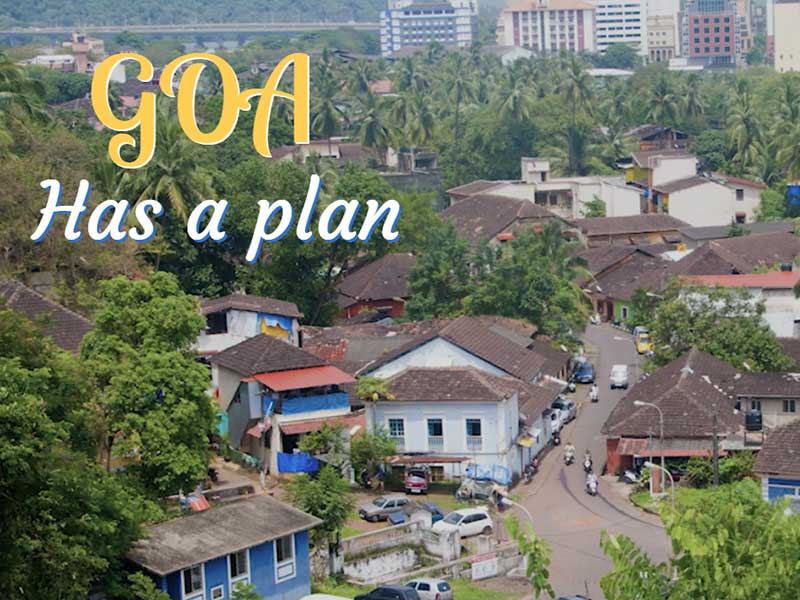Starting May 2020, GIZ-TERI Team will audit all 125 housing societies within the city limits to assess the implementation of the Solid Waste Management Rules, 2016, the Plastic Waste Management Rules, 2016, and the Construction & Demolition Waste Management Rules, 2016.
GIZ and TERI under the Indo-German project titled 'Development and Management of Waste NAMA (Nationally Appropriate Mitigation Action) in India' have adopted the city of Panjim for pilot demonstration of better waste management practices. The other town chosen for the pilot demonstration is Varanasi in Uttar Pradesh. NAMA is a global mechanism to help developing countries chose actions most suitable to their local conditions, with waste being a major contributor to increasing GHG emissions.

NAMA is a global mechanism that takes advantage of the nation-led initiatives tailored to each country's specific need. It helps developing countries, that do not have a legally binding emissions commitment, to develop a plan to mitigate greenhouse gas (GHG). In India, the waste NAMA Project aims to demonstrate and document strategies to reduce GHG emission from the city and build capacities among citizens on appropriate waste management practices. Under the waste NAMA assistance being provided to the City Corporation of Panjim (CCP), GIZ-TERI Team will conduct thorough audits of all 125 housing societies within the city limits, based on a detailed questionnaire. These audits are designed so as to assess the implementation of the Solid Waste Management Rules, 2016, the Plastic Waste Management Rules, 2016, and the Construction & Demolition Waste Management Rules, 2016.
During the audit, GIZ-TERI Team will interact with the households, street sweepers, waste collectors and waste transporters. These audits will help identify the status of these housing societies on various parameters such as door-to-door collection, source segregation, waste infrastructure availability and appropriateness of waste transport and processing. The audits will also fetch data on public sweeping, awareness generation and prevalent grievance redressal systems in the city. The implementation of the rules that came into force in 2016 will also be assessed.
The housing societies will be ranked based on their performance in the waste management domain, to help other organizations working with CCP in designing appropriate and effective information, education and capacity building programs. These audits will also showcase CCP’s performance in waste management domain and help them improve their level of services to the next tier. The audits will be spread over three months starting from April 2020.
CCP has tied up with the United Nations Development Program (along with the Minerals Foundation of Goa), and SAHAS Zero Waste Pvt Ltd to revive the waste program and conduct Information, Education and Capacity Buildings throughout the city with varied stakeholders.

